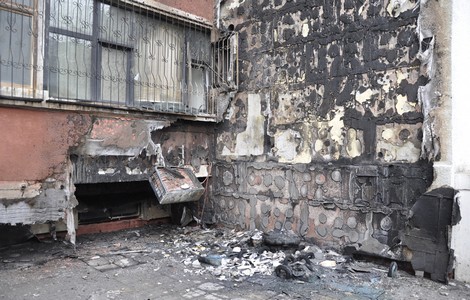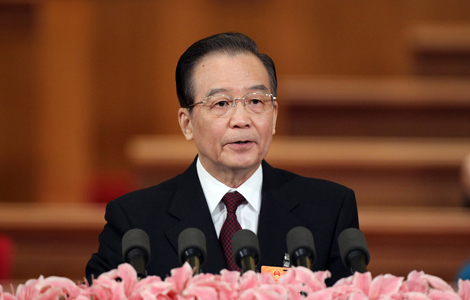UN official calls for end to violence against women
Updated: 2013-03-08 10:16
(Xinhua)
|
||||||||
UNITED NATIONS - The administrator of the UN Development Programme (UNDP), Helen Clark, on Thursday called for scaled-up global efforts to stop violence against women, which she said is a weapon of war in much of the world and a major obstacle to equality and development.
In a statement issued here on the eve of the day for women worldwide, Clark said, "Let's mark International Women's Day this year not only by recognizing the devastating impact of violence against women, but by renewing our collective efforts to stop it once and for all."
The theme for International Women's Day 2013, which falls on Friday, is "A promise is a promise: Time for action to end violence against women". It comes in the wake of a brutal, highly publicized gang-rape in Asia that focused unprecedented global attention on gender-based violence and sparked an international outcry.
"It is now time for increased action to end this abuse," she said. "In 1995, at the Fourth World Conference for Women (held in the Chinese capital of Beijing), governments identified violence against women as a violation of human rights and an 'obstacle to the achievement of the objectives of equality, development, and peace'."
"But the persistent prevalence of violence against women -- experienced by up to seven in ten women at some point in their lifetime -- shows that promises to end violence against women have not been met," she said, calling for concerted efforts that bring together government, civil society, law enforcement and judicial systems.
On Friday, UNDP Goodwill Ambassador and famed Spanish actor Antonio Banderas is expected to release a video statement as well, in which he will enlist men as necessary foot soldiers in the growing movement to end violence and sexual abuse against women and girls, including trafficking, female genital mutilation and child marriage, UNDP officials said here Thursday.
"Up to 60 percent of women around the world experience some form of physical or sexual abuse during their life and as many as half of all sexual assault are against girls under the age of 16," Banderas says in his video statement. "This is unacceptable and it has to stop now. Real men don't hit women."
Preventing and eliminating violence against women will require leadership and political will backed by action and resources, including the adoption and enforcement of national laws addressing and punishing all forms of violence against women and girls, according to Clark and the UN agency that she heads.
Currently, in more than 35 countries marital rape is not considered a criminal offense and more than 630 million women live in countries where domestic violence is not yet considered a crime.
In her statement, Clark made clear that violence against women has an important development component to it.
"This fight is not just an important end in itself," she said. "Gender-based violence is a means by which inequalities between men and women are perpetuated throughout the world. As such, it is essential to address if we are to achieve the Millennium Development Goals and accelerate development progress more broadly. "
Violence against women is both a human rights violation and an impediment to sustainable development. Aside from significant health consequences, it harms women and girls over the long-term in areas ranging from education to employment and economic status, to participation in politics.
For example, in India a woman loses an average of at least five paid work days for each incident of intimate partner violence, while in Santiago, Chile, women who experience severe physical violence earn only 39 percent as much as women who do not suffer abuse, said the officials.
Research from Australia, Canada, England and Wales and the United States suggests that the annual costs of such violence, including a range of costs such as responses to survivors and lost productivity, varies from $1.16 billion to $32.9 billion.
The costs are staggering for developing and middle-income countries as well. In Chile, women's lost earnings as a result of domestic violence are estimated at $1.56 billion or more than two percent of gross domestic product (GDP). In Uganda, the cost of domestic violence was estimated at $2.5 million in 2007.











